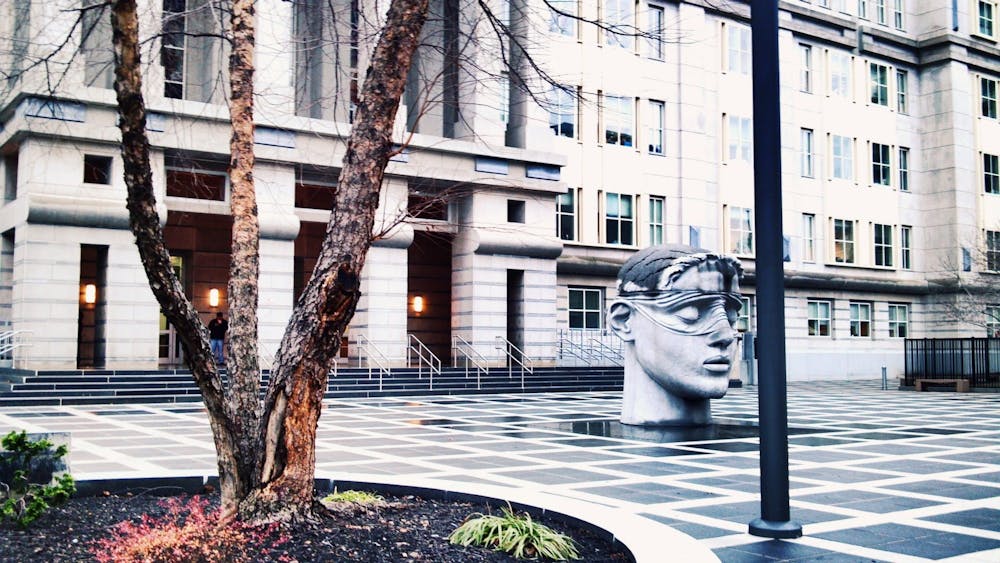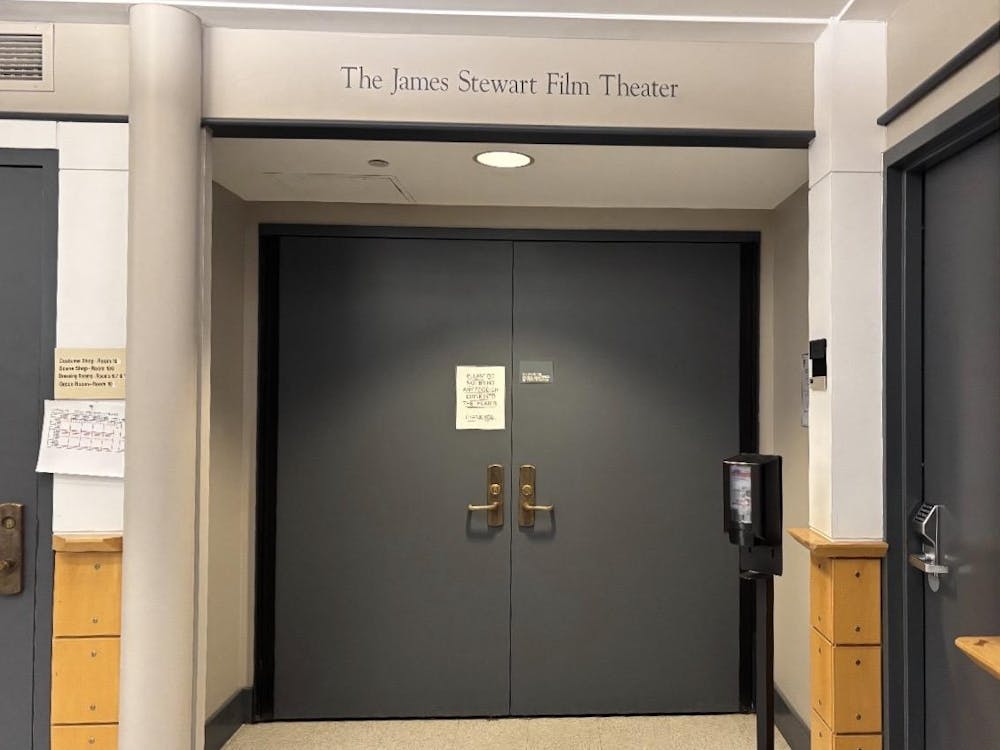Maya Aronoff ’19 GS ’23 thought she would spend the two years after graduation fighting the Trump administration’s family separations at the border. Instead, she has been tackling one of the many issues in the justice system exacerbated by COVID-19: the health of federal inmates.
“During a pandemic, prisons are a death trap. They’re hell,” Aronoff said.
In facilities as close to Princeton as Fort Dix, located outside Trenton, the government has tallied 168 inmate deaths and more than 27,500 total cases of the coronavirus.
Aronoff is not alone in pivoting because of the pandemic. And her clients are far from isolated in their suffering.
From virtual bail hearings in Michigan to Supreme Court arguments over Zoom, thousands of American attorneys have taken precautions to protect themselves and their clients from COVID-19. They have adapted their jobs at every level, from communication with their clients to courtroom conduct.
The Daily Princetonian spoke with four alumni in the law to discuss how the pandemic has affected their work.
In August this year, Aronoff began working at the El Paso Public Defender’s Office through the University’s Scholars in the Nation’s Service Initiative. Though she chose the office because of its staunch opposition to the president’s immigration policy, she now focuses on protecting federal inmates’ health.
“What I’m working on is securing compassionate release for people who have underlying conditions and are currently incarcerated,” she explained.

Aronoff noted that most inmates cannot social-distance in their cells. According to her, they often lack personal protective equipment, quality medical care, and hand sanitizer, which guards label as “contraband” because it contains alcohol.
“Emotionally it’s frustrating,” Aronoff said, “because scientists agree that, across the board, the best way to protect prisoners and guards is to send people home.”
Gov. Greg Abbott could release all sick prisoners in Texas tomorrow, Aronoff stressed. She saw his inaction as further reason for change.
“There needs to be a total reframing [of U.S. prison policy],” she said. “Because a lot of the crimes that our criminal justice system punishes are crimes of need.”

Sierra Villaran ’11, a deputy public defender in San Francisco, agreed that the poorest Americans bear the brunt of the pandemic.
Her client, David Brown, was homeless last summer when police found him rummaging through trash for discarded shoes. While Villaran would argue his only crime was poverty, Brown was charged with burglary and relegated to a jail cell to wait for his pandemic-delayed trial date.
Five months passed until Villaran learned that she and Brown would partake in San Francisco’s first mid-pandemic trial.
As Villaran explained in a piece for California’s Daily Journal, one of her first challenges was persuading the judge to require clear face shields during the trial.
“Facial expressions … are a critical part of how we as human beings assess the credibility and overall presence of another person,” Villaran wrote. “[And] so you need to make a connection with jurors to really get them to talk about how they feel.”
“Even more,” she continued, “the history of masks in American culture is one steeped in villainy. Masks are worn by bank robbers, Halloween killers, and Klansmen.”
She worried that these stereotypes would work against her Black male client if jurors couldn’t see his face.
“A compromise was struck,” Villaran wrote, when the judge required many participants in the trial to wear clear masks. “I’m so glad I did it. We got a lot of good feedback for wearing the clear masks,” she told the ‘Prince.’
Villaran next struggled to gain access to Brown in jail.
“To build trust, normally, in a non-pandemic environment, it involves a lot of meetings, going to client’s houses, sitting down with their parents, sitting down with their siblings, meeting them in the office, and really spending a lot of time with them,” she said. “During a pandemic, it’s been very difficult to form that connection.”
Villaran also wanted to work alongside Brown during his trial, both to reassure him during tense moments and to convey their close relationship to jurors.
“My client and I ended up communicating using a laptop messenger app, which wasn’t ideal in any sense but was better than nothing,” she remembered.
When he was acquitted on Aug. 13, Villaran wished they could hug as he shook with joy.
“I’m really proud of him,” she told the ‘Prince’, “for being brave enough to go to trial. That was pretty rewarding.”
For Sandra Bruno ’04, an immigration attorney in Albany, soaring courtroom emotions of delight and despair are less familiar than the grinding, constant frustration towards federal policy changes that have compounded COVID-19’s challenges.
Both Bruno and Daniel Zeft ’90, an attorney in Chicago, work extensively with EB-5 visas, which the U.S. government grants to foreign investors who can create ten or more jobs in the U.S.
“It’s traditionally Chinese [businessmen] who use that program to come to the United States,” Bruno said. “But because of COVID-19, one of the Trump administration’s proclamations bars the issuance of visas for people who they think will pose a danger to the labor market.”
“Even though there’s an exception for people coming in under that particular visa [EB-5],” she continued, “the Department of State continues to think they’re included in the proclamation, and no consulate has been issuing these types of visas.”
In Zeft’s view, this order is a prime example of the government’s anti-immigrant agenda.
“The Trump administration’s approach to immigration has been a drastic departure from virtually everything in the last 50 or more years of U.S. immigration policy,” Zeft said.
“Trump is constantly changing policies and issuing proclamations that have made it almost impossible to provide clients with reliable advice,” Bruno said.
It doesn’t help that many consulates are either closed or painfully hobbled. Bruno’s and Zeft’s clients used to apply for visas, participate in interviews at a consulate, and wait for a ‘yes’ or ‘no,’ but now they lament the system’s halting pace.
“Advising my clients is a nightmare,” Bruno said. “We don’t know when consulates are going to reopen. I don’t know what’s going to happen, who they’re going to interview, or whether they can close the backlog that’s accumulated since March.”
All the same, Bruno predicts that the immigration process will improve, if only slightly, under the Biden administration.
“I don’t expect Biden to undo everything Trump has done or to make the practice of immigration law much better,” she said. “But it should at least not be so chaotic.”
Managing chaos is the year’s theme for many of Princeton’s alumni lawyers. To attorneys in the immigration and justice systems, the stresses of the pandemic can be overwhelming as they defend clients in court and unravel ever-changing government directives.
In Villaran’s words, “It’s just really hard to be a good lawyer from six feet away” – and six feet apart they will remain for the foreseeable future.








